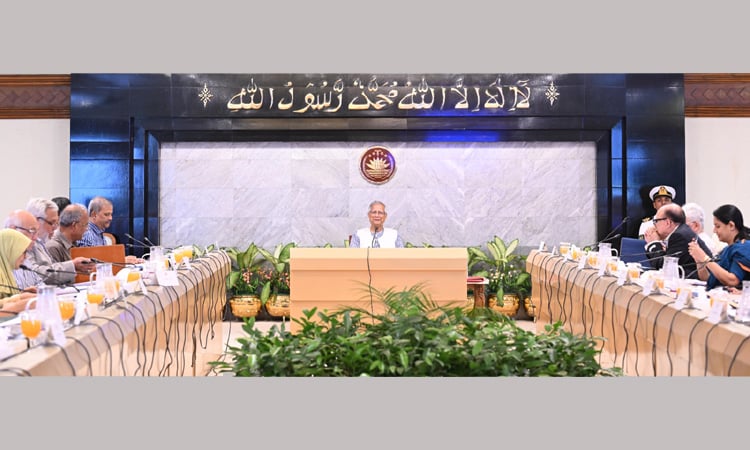News Flash
News Flash

DHAKA, Oct 30, 2025 (BSS) - The government today gave final arval the draft of the National Human Rights Commission Ordinance-2025 with significant reforms aimed at transforming the commission into a truly empowered and effective institution.
The ordinance got the final approval at the weekly meeting of the Council of Advisers held at the Chief Adviser's Office (CAO) here with Chief Adviser Professor Muhammad Yunus in the chair.
"You know we have a human rights commission, which was largely ineffective due to structural flaws, weak mandates, and the appointment of individuals who lacked either authority or initiative," said Law Adviser Professor Dr Asif Nazrul at a press briefing at the Foreign Service Academy after the meeting.
He said, “We have tried to make it a far stronger and more functional institution capable of genuinely addressing human rights violations.”
The law adviser said one of the key reforms is the expanded definition of human rights, which now includes “rights declared in various international human rights instruments ratified by Bangladesh and those recognized under customary international law.”
This means that beyond the fundamental rights enshrined in the Constitution of Bangladesh, the Commission will have jurisdiction over violations of international human rights norms Bangladesh has endorsed, he added.
According to the ordinance, the reconstituted Commission will comprise a Chairperson and four full-time members.
A seven-member Selection Committee, headed by a judge of the Appellate Division, will recommend appointments to vacant positions through a transparent process involving public notices and interviews—similar to judicial appointments.
Addressing a major drawback of the previous law, the new ordinance empowers the Commission with authority to investigate human rights violations committed by law enforcement agencies and all acts of abuse carried out under state sponsorship or with state support.
The ordinance also allows the Commission to take primary responsibility for implementing laws related to enforced disappearance prevention, protection of victims, and other human rights protection laws.
Instead of forming a separate “Enforced Disappearance Commission”, Professor Asif Nazrul said, the National Human Rights Commission will handle such cases.
Furthermore, he said, the scope has been kept for the Commission to investigate cases of custodial deaths and similar incidents. Crucially, the ordinance makes compliance with the Commission’s orders mandatory, the Law Adviser added.
Chief Adviser's Press Secretary Shafiqul Alam and Deputy Press Secretary Abul Kalam Azad Majumder were present at the briefing.